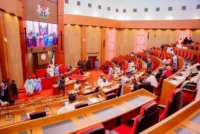Conducting a recall election is significantly more expensive than a standard constituency election, akin to managing three constituency polls in one go. This insight was shared during an online discussion focused on recall regulations and guidelines for 2024, held on Saturday via a social media platform. The discussion also tackled myths and facts surrounding voter verification and result systems.
A key official explained that the recall process begins once a petition is received and verified to meet legal standards. The initial step involves a verification exercise at affected polling units, utilizing a biometric voter verification system to confirm that petition signatories are genuine registered voters. “We need to establish a majority of over 50 percent of signatures from the constituency,” the official noted, emphasizing the meticulous nature of this phase.
Following verification, the process advances to a referendum—a straightforward yes-or-no vote by the constituency’s registered voters. This stage, combined with the earlier efforts, demands extensive staff mobilization, deployment of election materials, transportation, and other resources, mirroring the logistics of three senatorial district elections.
Another senior figure acknowledged the steep costs but stressed that adherence to legal mandates leaves no room for shortcuts. The process is tightly governed by regulations and electoral laws, which require petitioners to secure signatures from at least half the constituency’s registered voters. Upon receiving a petition, a preliminary review is conducted, followed by signature verification. The lawmaker in question is notified and can appoint agents to monitor the proceedings, ensuring transparency.
The possibility of online voting was also raised, with the official clarifying that current constitutional provisions do not allow for electronic voting, keeping the process firmly rooted in physical operations. This multi-layered, resource-intensive approach underscores why recall elections carry a heftier price tag than their constituency counterparts, reflecting both the complexity and the commitment to legal rigor.












Wow, did anyone else find the article on recall elections super confusing? I feel like I need a flowchart to understand it all!
Im not convinced that recall elections are worth the cost. Seems like a lot of hassle for uncertain outcomes. Thoughts?
Hmm, do recall elections really outweigh constituency costs? Im not convinced, seems like a complex issue to untangle.
Interesting read, but isnt it time to simplify the recall election process? Seems like a lot of unnecessary complexities.
I find it fascinating how recall elections can be so costly yet necessary. What do you think? Should we reform the process?
I think recall elections are a waste of time and money. Lets focus on more important issues!
Im not convinced that recall elections are worth the cost. Seems like a lot of hassle for uncertain results. What do you guys think?
I think the article missed the point about the impact of recall elections on minority representation. Its a crucial aspect to consider!
Interesting read, but do recall elections really outweigh constituency costs? Seems like a flawed comparison to me.